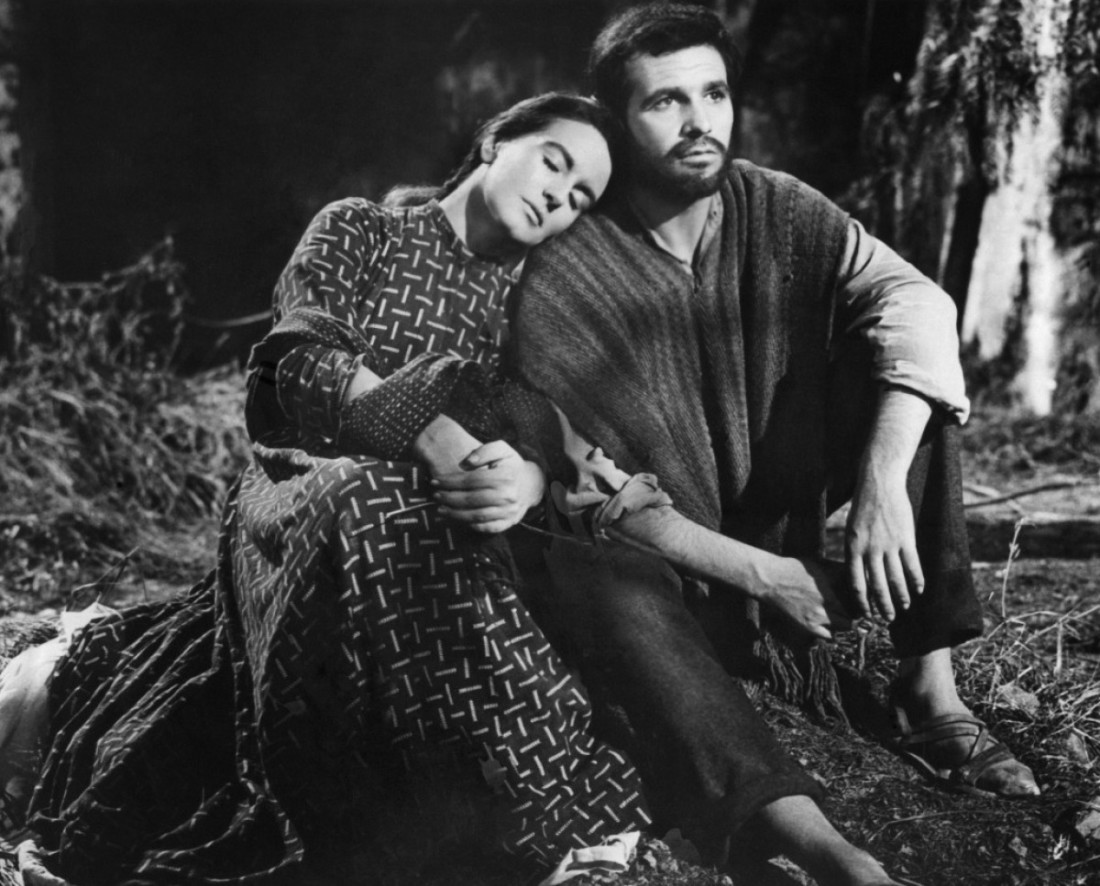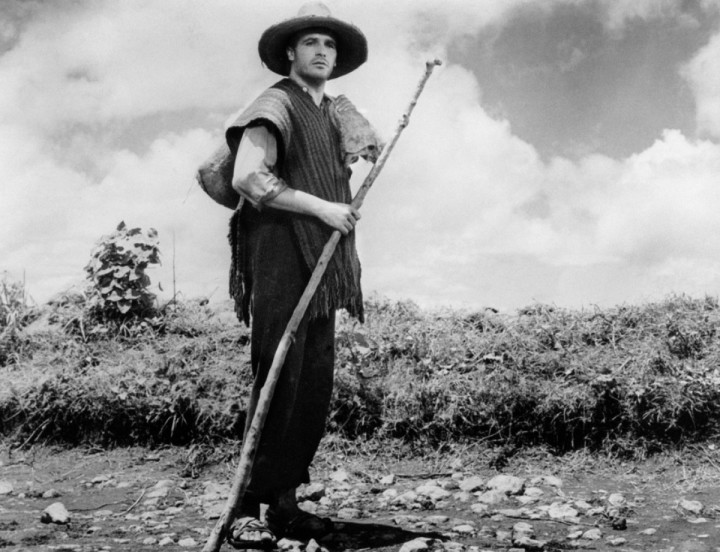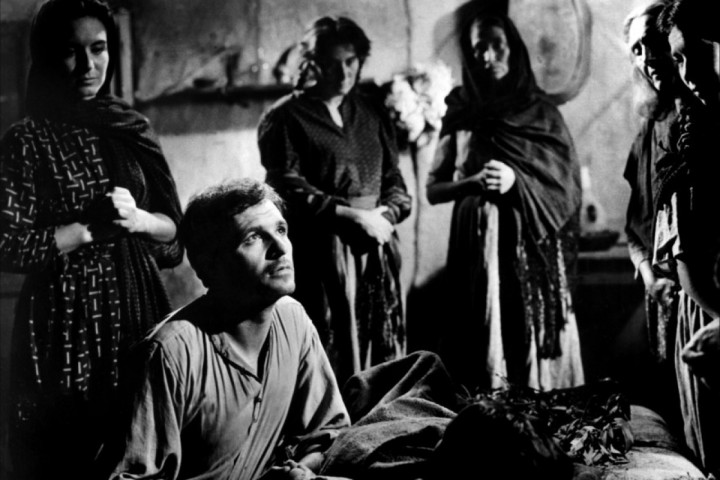Nazarín (1959) is perhaps the most accomplished and difficult of Luis Buñuel’s Mexican films—not in the least because it’s a film that can be read in two distinctly different ways, depending on one’s predisposition concerning the material. The film is either a critique of Christianity, or a critique on the impossibility of Christianity in the modern world. The truth is actually somewhere in the middle, but given Buñuel’s standard take on the follies of religion and his frequent claims of atheism, it would seem more likely to lean toward the former. However, it’s worth remembering that the filmmaker’s most common response to the question of atheism was, “I’m still an atheist — thank God,” so really all bets are off.
The story follows the quasi-saintly Father Nazario (Francisco Rabal), a man who tries to live his life strictly on the principles of Jesus Christ—even choosing to live amidst the lowest of the low in the worst part of town. It is this that sets the story in motion, since his sheltering of a streetwalker, Andara (Rita Macedo), who’s killed another woman in a fight, leads to his dismissal from the church and sets him on a pilgrimage. The pilgrimage only furthers the image of the impracticality of his approach to life. Not only do his travels benefit him nothing, neither do they do anyone else much good, since disaster and death seem to lie in his wake. In the end, Nazario winds up questioning his own beliefs, which in Buñuel’s view might be considered enlightenment. It’s a film rich in detail and strangeness (some verging on surrealism without ever quite crossing the line)—and one that raises more questions than it answers, making it constantly fascinating, if occasionally maddening.
Classic World Cinema by Courtyard Gallery will present Nazarin Friday, June 6, at 8 p.m. at Phil Mechanic Studios, 109 Roberts St., River Arts District (upstairs in the Railroad Library). Info: 273-3332, www.ashevillecourtyard.com






Before you comment
The comments section is here to provide a platform for civil dialogue on the issues we face together as a local community. Xpress is committed to offering this platform for all voices, but when the tone of the discussion gets nasty or strays off topic, we believe many people choose not to participate. Xpress editors are determined to moderate comments to ensure a constructive interchange is maintained. All comments judged not to be in keeping with the spirit of civil discourse will be removed and repeat violators will be banned. See here for our terms of service. Thank you for being part of this effort to promote respectful discussion.